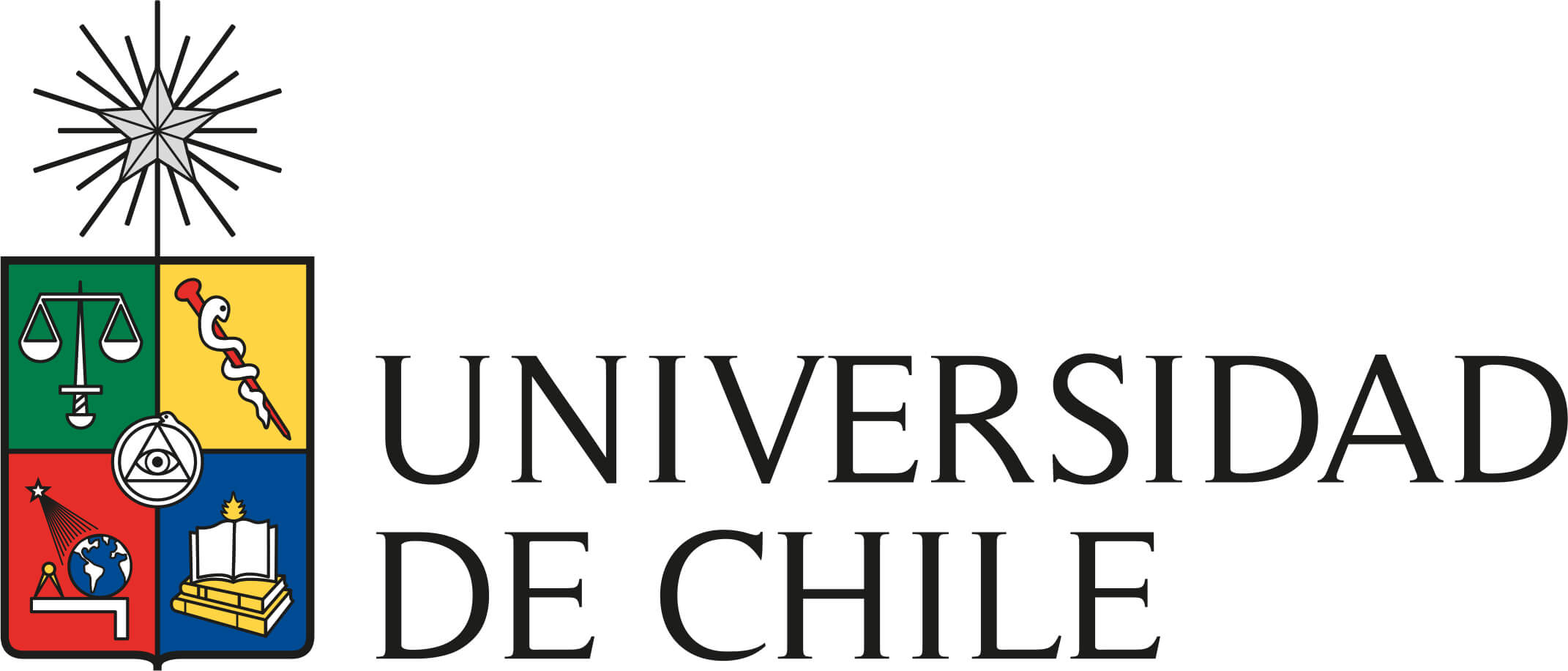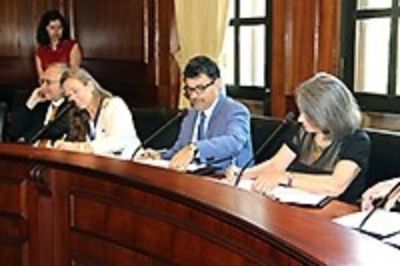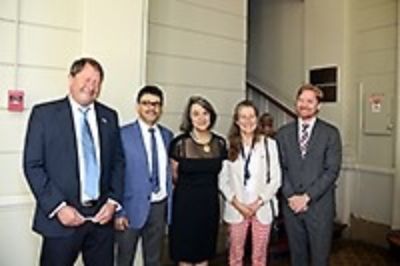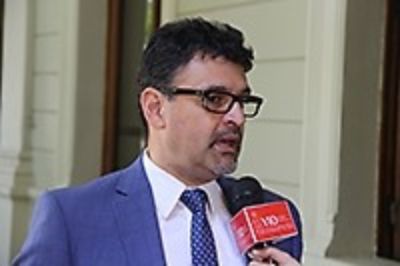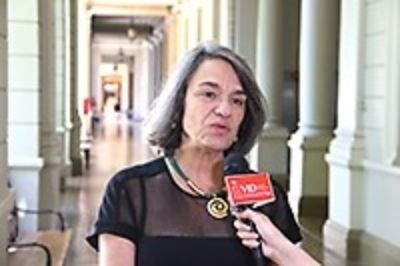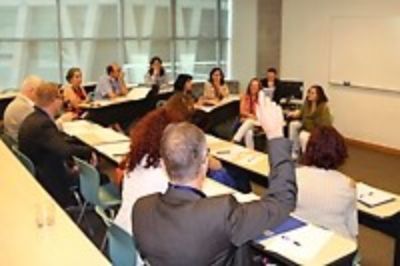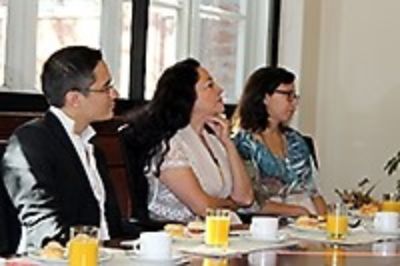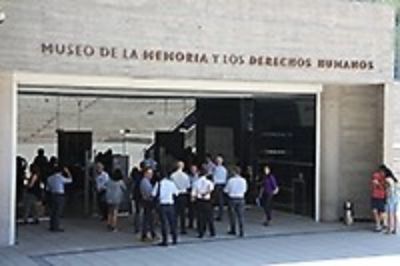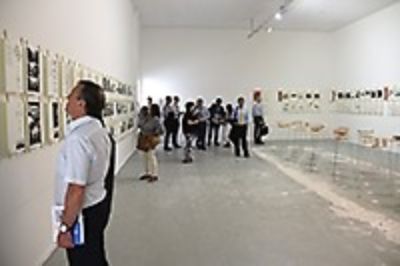From November 28th to December 1st, a delegation of 20 Swedish scholars and researchers from the universities of Lund and Uppsala visited Chile to establish an international academic network with the University of Chile and Pontifical Catholic University of Chile (PUC). Following the signing of a letter of commitment, this network aims to strengthen interdisciplinary collaborative research, exchange scientific knowledge and open new sources of funding for study abroad opportunities.
During the kick-off, as part of the university's internationalization project and efforts to organize the 2017 Chile-Sweden Forum, the professors gathered in working groups to discuss three major topics: Pending and New Social Challenges; Sustainable Use of Natural Resources and Innovation; and Health Challenges in Modern Society, which delved into 17 areas that are important to both countries in an effort to work together to address our challenges.
According to the Vice Chancellor of Research and Development of the University of Chile, Flavio Salazar, “this is the product of efforts lasting several months and also reflects the status of a very important relationship with PUC on matters that are important on a countrywide level. The exchange between the Swedish and Chilean delegations has been a great success and, as a result, we expect to see exceptional research collaboration that we hope will pave the way for other possibilities in order to continue sharing experiences and scientific knowledge. In addition, the three overarching areas that have been defined are related to our reality as a country and the interest expressed by Sweden.”
Regarding the letter of intent signed by the four institutions on December 29th, the Vice Chancellor of Research of PUC, Sol Serrano, commented, “it is part of a two-year process where we will meet four times to form groups of Swedish and Chilean researchers with definitive, sound, lasting and far-reaching projects in diverse disciplines. The idea is to formulate studies on topics of common interest that enable us to internationalize research with developed nations in order for Chilean science to make a radical contribution to our society. In other words, to position Chile in global issues.”
The Swedish Ambassador in Chile, Jakob Kiefer, added, “for some time now, we have had very close relations because close to 60 thousand Chileans live in Sweden. However, there has not been appropriate institutional agreements between universities to reinforce this exchange. Relations are built by people, students and professors, which is why this opportunity is so important, since it involves the two most prestigious Swedish universities, which, in conjunction with Chilean institutions, can do many things. Although Chile currently has many major challenges, paths should be established to increase funding for research in order to transform it into a developed country.”
Collaborative Research, An International Challenge
During the week meetings were held with the teams organizing the 2017 Chile-Sweden Forum to identify the participating researchers and the areas of interest that will be addressed. Swedish and Chilean scholars also took part in working sessions to dialog about health, natural resources and social problems based on their own experiences.
According to the Regional Manager for Latin America at the University of Lund, Miguel Cornejo, “this is an historic moment. Given the migratory history between Chile and Sweden, it is very important to establish academic collaboration as one of the major steps on an institutional level. The basis of this project has been to learn from both parties, from the exchange of knowledge and social sustainability. The University of Chile and PUC form a very powerful duo since they bring together first-rate research, in addition to centers for excellence in extremely important topics, which will lead us to have good outcomes for the future we envisage for this partnership.”
Participants also heard a presentation on funding alternatives provided by CONICYT in order to understand the higher education systems in both countries and initiate dialog with agencies that finance future study opportunities in diverse disciplines. After signing the letter of commitment, the Swedish commission toured the Museum of Contemporary Art (MAC) in Quinta Normal, led by its Director, Francisco Brugnoli, as well as the Museum of Memory and Human Rights, where Swedish scholars had a chance to learn more about the domestic historical context that drove many Chileans into exile.
The Dean of the School of Sciences and the President of the Latin American Council for the University of Lund, Olov Sterner, remarked, “the organization here is planned since quite some time ago so I think we have a very good idea of how we want to organize this kick-off and this project. We have of course from both countries a lot of experience as part of an international collaboration with academic researchers. We also have a very good vision of the work being done by the University of Chile and the Catholic University, which have embarked on an internationalization project and where no one should be excluded from participating."
Professor and Director of the Biomedical Center (BMC) of the University of Uppsala, Leif Kirsebom, commented, “it is very important to visualize and strengthen this collaboration as a communication platform for future academic research. The gathering of researchers has enabled us to work and answer questions that fit the realities of both countries, and as a way to make it possible for students. This is all extremely relevant for us since we can contribute with our own experience and, thus, all institutions involved can obtain benefits about how to operate.”
Lastly, the Director of the Internationalization Project for the University of Chile, Andreé Henríquez, concluded, "we have begun a process to create joint research and teaching opportunities at the undergraduate and graduate levels over the next few years. Each party has identified possibilities and opportunities in their areas of knowledge. Much work still remains, but the cornerstone has already been laid for a bigger project that involves two nations, linked by history, working together in higher education on diverse research topics."

